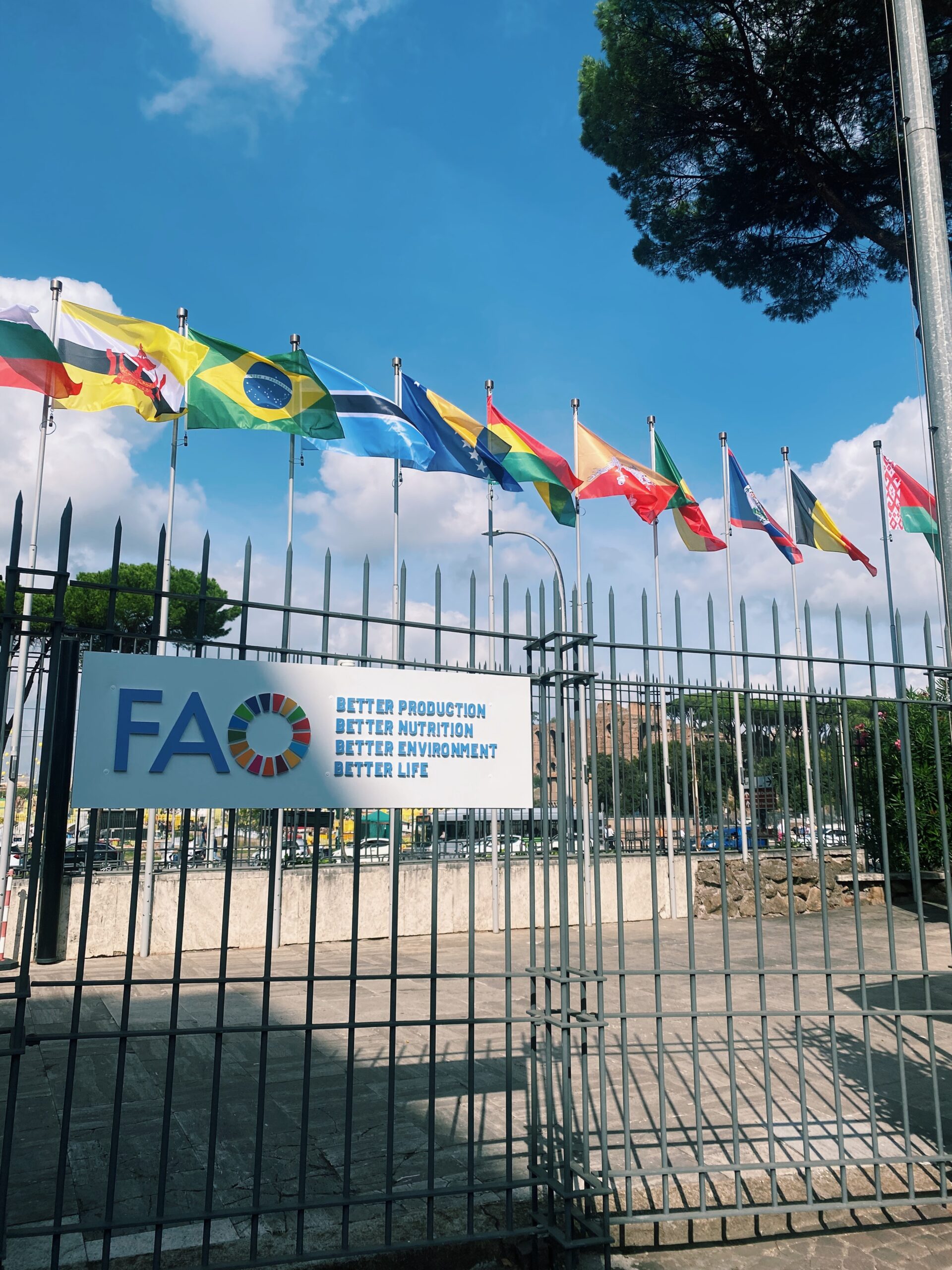
Sydney Pryor

Sydney Pryor
By Sydney Pryor, Kailey McNeal, Nicholas Smaldone, Juan Archila Godinez, Lois Maison, Angela Tarana
While the draw of authentic cacio e pepe just might be strong enough to pull some of us from D.C. across the Atlantic, it was the 2023 World Food Forum (WFF) that brought us to the Food and Agriculture Organization of the United Nations (FAO) headquarters in Rome, Italy.
Our group of six graduate students from the George Washington University (GW) in Washington, D.C., represented the GW Global Food Institute as a youth delegation to the WFF. The six of us also share the belief that the policies that currently govern agrifood systems uphold the interests of governments and powerful industry groups at the expense of human health, social justice, and the future of the planet.
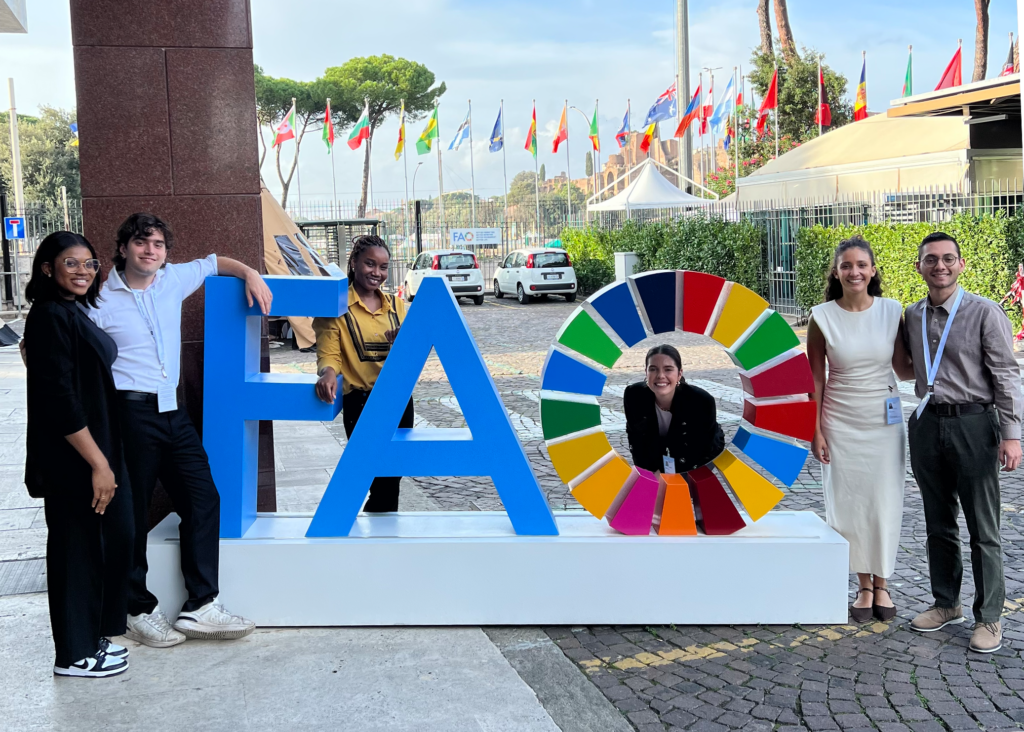
As collective first-timers to any United Nations convening, we want to provide you with our insights as six individuals with diverse, yet often overlapping reflections on our time and the opportunities we see to make the WFF more inclusive and action-oriented. Although this year’s WFF did an amazing job of bringing together compelling voices and actors from across the globe for important discussions, there were also a few key areas of improvement that would have made the event that much more successful. Here are our “sweet” (our favorite parts) and “sour” (our not-so-favorite parts) reflections and our suggestions to strengthen the WFF experience for future youth food systems advocates.
The WFF is a global platform to transform agrifood systems with the 2023 theme of ‘Agrifood systems transformation accelerates climate action.’ The forum was composed of three interconnected events – the WFF Global Youth Forum, the FAO Science and Innovation Forum, and the FAO Hand-in-Hand Investment Forum. These were intended to facilitate intergenerational and cross-sector conversations about the transformation of agrifood systems at the local, regional, and global level. The WFF Global Youth Forum was specifically designed to change the conversation around food and agriculture by giving young people a seat at the table and fostering youth-to-youth connection through open dialogue and a series of cross-cutting events.
Global Youth Forum events included panels, workshops, and youth assembly discussions over five days centered around four tracks: youth action, innovation, education, and culture. Our delegation engaged on topics ranging from animal source food alternatives to sustainable development to emerging technologies and traditional innovation for climate action.
As part of the WFF, the Global Youth Action Assembly sought to turn policy recommendations into action and deepen understanding of policy between FAO experts and global youth. Parallel to the WFF was the Global Indigenous Youth Forum, the only gathering of Indigenous youth at a high-ranking UN agency.
The Sweet: There was no shortage of events to attend at the WFF over our five days, and we appreciated the organization of the event overall and found it especially beneficial to attend in-person. The opening and closing ceremonies were unique opportunities to hear from world leaders representing diverse agrifood system contexts on their visions for the future and actions they are taking in the present to achieve those goals. We also greatly appreciated events that prioritized time for meaningful breakout discussions in smaller groups.
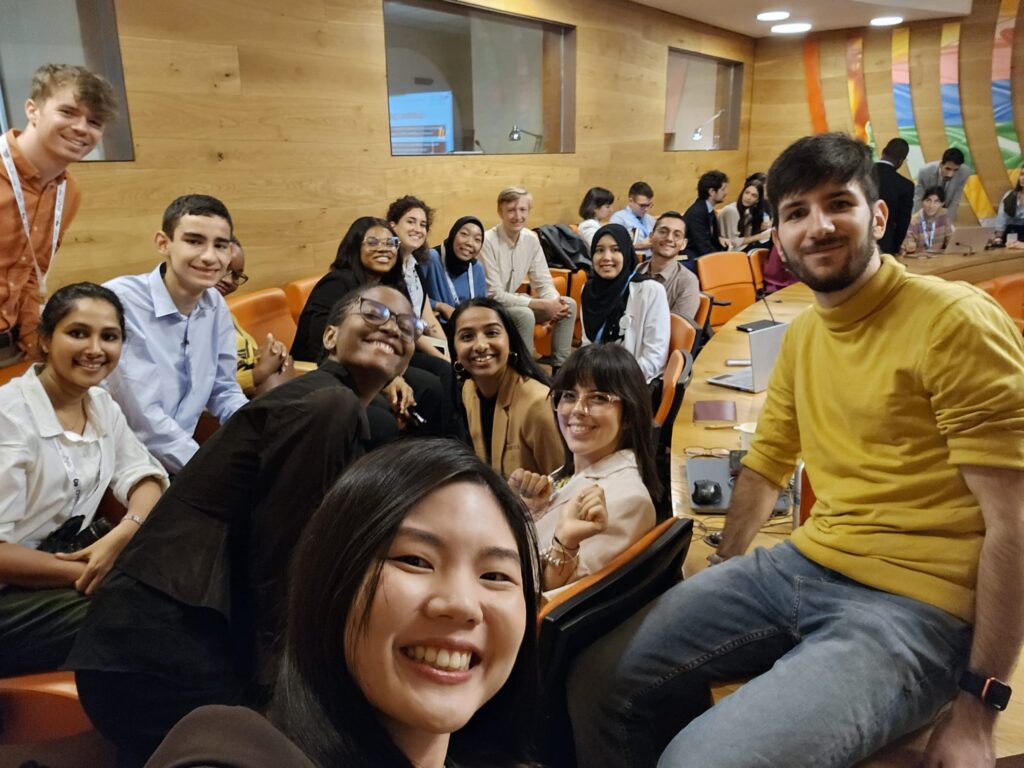
These discussions provided the space for more critical reflection of the topics being presented, experience and solutions exchange between individuals, and co-creation of priorities around a specific issue.
Our delegation felt particularly compelled by the solutions-oriented framing in many of the sessions specific to the Science and Innovation Forum and would encourage more crossover with the sessions in the Global Youth Forum.
Keep it sweet: Though not embraced by all FAO officials, continue to prioritize discussions of progressive topics in a mainstream space. Several events discussed alternatives to animal sourced foods (ASF) as a way to improve human and planetary health and the FAO Chief Economist made an explicit call for ASF reduction in the Western world, acknowledging the distinction between industrial livestock production and smaller scale, traditional livestock production.
The Sweet: At the WFF, we met other young people from around the world working on local solutions to agrifood systems in their communities. The event was action-oriented and encouraged us to exchange ideas with our peers about how we want our food to be grown, shared, and consumed. The global context ensured a diversity of perspectives, many of which we have not been exposed to in our own studies and advocacy.
Room for improvement: Create casual opportunities and intentional spaces (i.e., coffee breaks) at WFF for deeper and critical conversations, networking, and collaborations between young individuals, delegations, and FAO representatives.
The spaces for interaction will help attendees to understand the different ideas and perspectives on the central topic of the WFF. It can also serve as a bridge to connect people with diverse backgrounds but the same working interests to contribute to better agrifood systems and protect the environment. This could take the form of introductions and roundtable discussions starting at the beginning of the week in a room that stays available for youth and delegations to visit in between sessions for the duration of the WFF and should include affinity groups that represent personal identities as well as those for different agrifood system areas of interest/expertise.
The Sweet: At the same time as the World Food Forum event, the FAO also held the Global Indigenous Youth Forum. Although they were separate events, they both took place at the FAO headquarters allowing us to attend several sessions of the Indigenous Youth Forum.
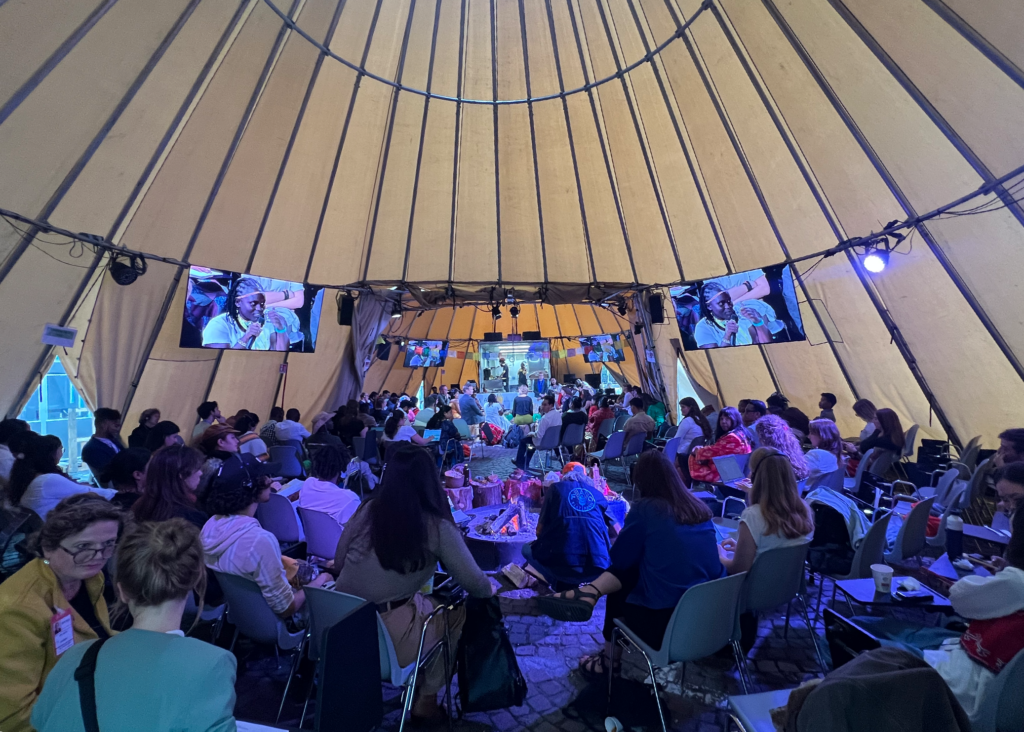
One session that we attended focused on expanding technological innovation in agrifood systems to include Indigenous knowledge. Indigenous youth from different regions in the world shared the ways their communities have adapted their traditional agrifood practices to be resilient to climate change. Indigenous youth in another session highlighted how our increasingly industrialized global agrifood system and the widespread availability of ultra-processed foods threatens traditional knowledge transfer in Indigenous communities. Elevating Indigenous voices should be a priority across agrifood system sectors and contexts.
Room for improvement: Prioritize the inclusion of Indigenous youth in ongoing agrifood system transformation discussions by providing a broader platform to share traditional knowledge and innovation.
Although we appreciated being able to attend the sessions within the Global Indigenous Youth Forum, we were disappointed that the Indigenous youth event was separate from the WFF, because Indigenous youth are an integral part of any youth-focused agrifood system discussion. While recognizing the value of having a separate space for Indigenous youth, it was off-putting to have the event at the same time and place as the WFF, as if to silo the two groups and create a false dichotomy between Indigenous and non-Indigenous youth in agrifood systems.
The Sour: The sessions we attended were valuable for continuing to think about actions to implement for agrifood systems transformation and environmental protection. However, the panel sessions lacked the opportunity for meaningful insights from panelists. We appreciated the efforts of the panelists to convey their message in a very short time, but the lack of time limited panelists’ contributions to their pre-prepared speeches, inhibiting any dialogue between speakers.
Room for improvement: We suggest the organizers:
Decrease the number of panelists so that they can provide more detailed experiences and concrete action items, as well as give audience members enough time to ask meaningful questions. This follows through on one of the goals of the Global Youth Action Assembly, which was to ‘deepen the understanding of policy topics with fellow youth and FAO experts.’
Ensure higher-level policy- and decision-makers are in attendance from as many countries as possible. It is important that youth delegations have the opportunity to share perspectives and experiences with their representatives to encourage further collaboration, as well as provide pragmatic and constructive feedback on our context-specific agrifood action items and solutions. This approach is especially important given that we learned this week that the FAO does not have the ability to enforce any of its efforts at the country level or hold governments accountable to act on their specific commitments.
Keep an open mind and a positive, solutions-oriented mindset. We felt that some FAO decision-makers were dismissive of the opinions of youth representatives. Organizers must ensure that higher-level experts and professionals are interested in inclusive and open dialogue, and take steps to prevent combative environments for the youth representatives and others in the room.
Increase the structured participation of policy- and decision-makers at roundtables and in direct meetings with delegations throughout the week, particularly for events that prioritize an open dialogue between all participants during which challenges, opportunities, and expectations can be exchanged and discussed. Again, it is important to keep a positive mindset.
Open all WFF sessions to youth attendees, so they don’t miss out on clear-cut actions presented in other innovation and investment sessions.
Specify action-oriented steps in future youth events to help us understand how to most productively and respectfully engage in these spaces to return home with strategies for how we can transform agrifood systems.
The Sour: Unfortunately, the forum theme this year of “agrifood system transformation to accelerate climate action,” seemed like an afterthought during many of the forum’s central deliberations.
As a whole, our delegation supports a holistic, systemic approach to sustainable agrifood system transformation in high, middle, and low-income countries. The regional policy priority selected as a focus for the North America region, including the U.S. and Canada, was to ‘ensure inclusive, healthy and sustainable feeding programs at schools, nurseries, and colleges that are procured from local producers and provide food education.’
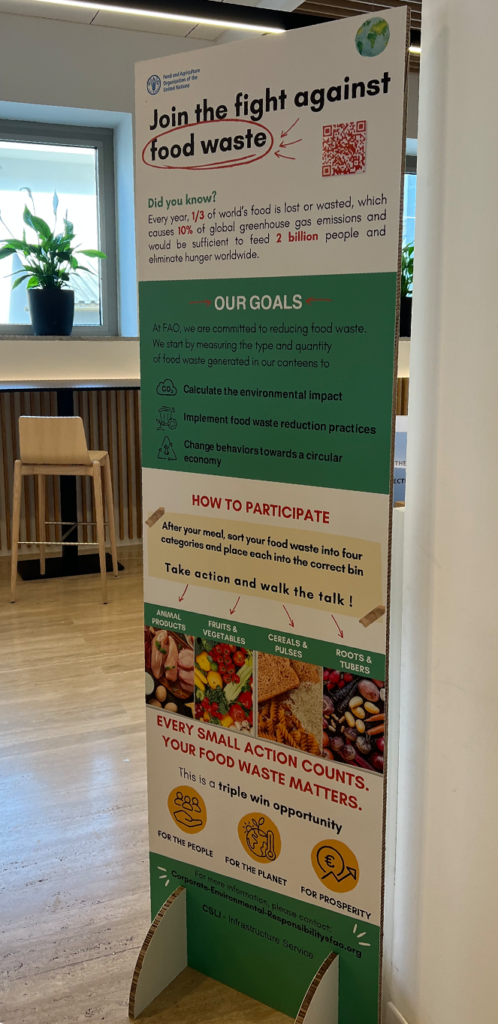
However, our policy deliberation at the WFF was only centered around changing behavior at the individual level in schools through education. Despite the importance of childhood education around food and agriculture and the need to connect students with how their food is produced and prepared, we felt this hyperfocus on education significantly inhibited our ability to propose policies that could drive ‘agrifood system transformation’ and led to a lack of disruptive change policies.
Policy actions should not only facilitate the consumer’s ability to make healthy and sustainable food choices, but also incentivize the producer’s participation in an economically rewarding and just transition, and empowering workers through stable livelihoods and protections.
We propose values-aligned food procurement as a strategy to align the foods offered in schools. These values include nutrition, environmental sustainability, animal welfare, local economies, and a valued workforce. The Good Food Purchasing Program functioned as a model for this conclusion, along with other strategies to reduce the literal and figurative distance between children and the food they consume.
Room for improvement: We suggest the organizers:
Provide additional time for fruitful deliberation around larger systems-level challenges. This would have been meaningful for our delegation and other participants and have allowed us to address the urgency in developing policy actions through a systems lens at the event.
Democratize the process of choosing data and policy priorities. The policies set for the North American Assembly, representing both the U.S. and Canada, was determined by a survey taken with 35 respondents. It was unclear who these people were and how representative they were of our region, especially when there were well over 35 youth delegates from North America attending the WFF. Some participants reported not being aware or knowledgeable of these priorities and being unable to contribute to discussion. Instead, there should be more efforts to do meaningful outreach with youth assemblies, ensuring participation in every step of the process, from the forum itself, to remote preparation and follow-up work throughout the year.
Ensure transparency in the agenda setting process from year to year, given that all individuals present are not necessarily familiar with or historically engaged in these processes or spaces. Additionally, the same level of transparency should be applied to the final drafting and submission of the recommended policy actions that are generated as a result of the Regional Youth Assembly meetings held during the WFF. Individuals and delegations engaged in these processes at the WFF should be provided with information about who is responsible for drafting and reviewing the final policy actions, who is the intended audience of the final policy actions, how the information is presented to them, and what opportunities we are given to stay engaged beyond the WFF.
Looking forward, we need the guidance and insight of those with experience in the critical topics being discussed at the WFF and more seats at the table for diverse agrifood system perspectives. We believe that together, across generations, we can do more ‘to move the needle.’ We appreciated the opportunity to listen, engage, be inspired, and critically reflect on the urgency of transforming our agrifood systems and moving from conversation to action.